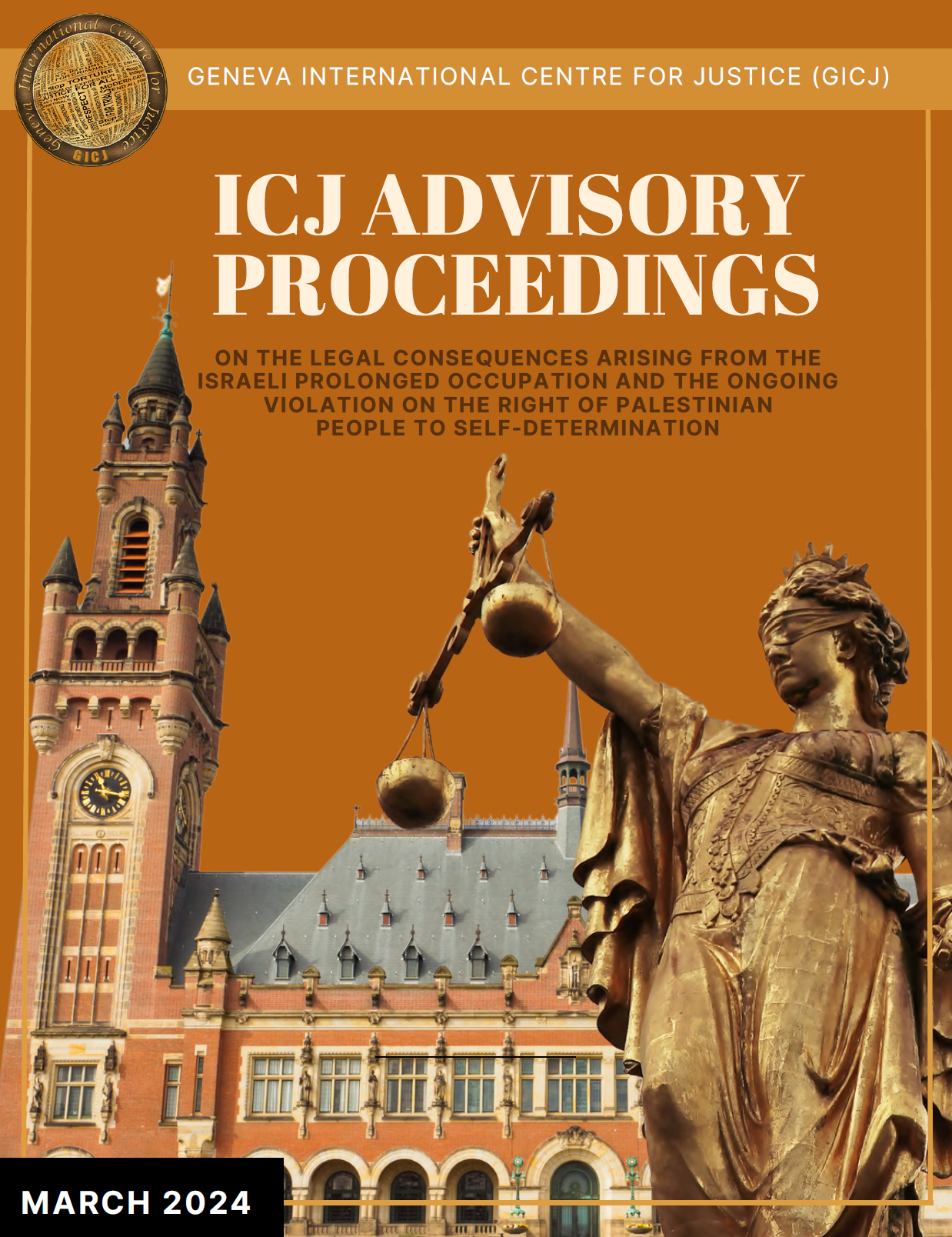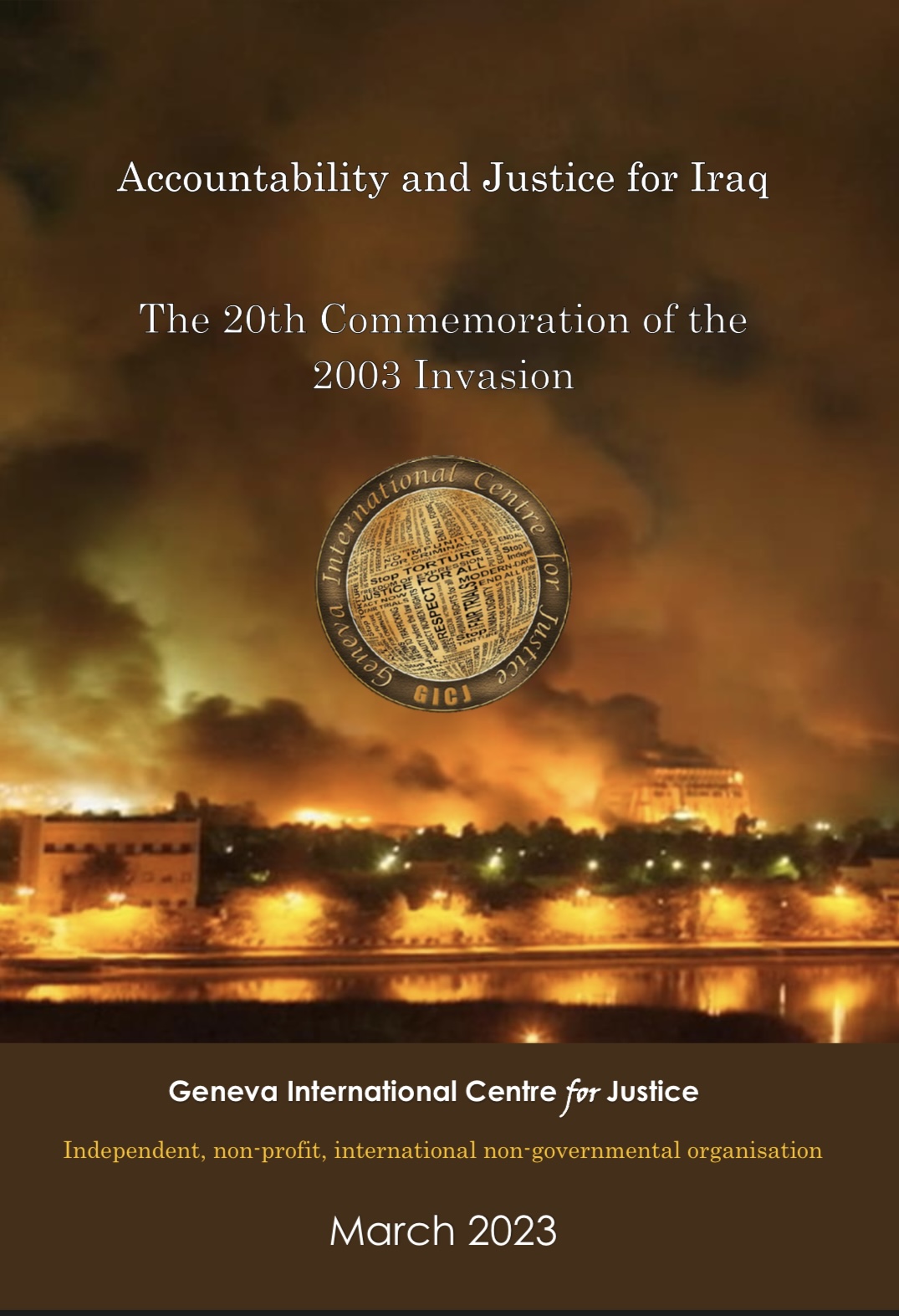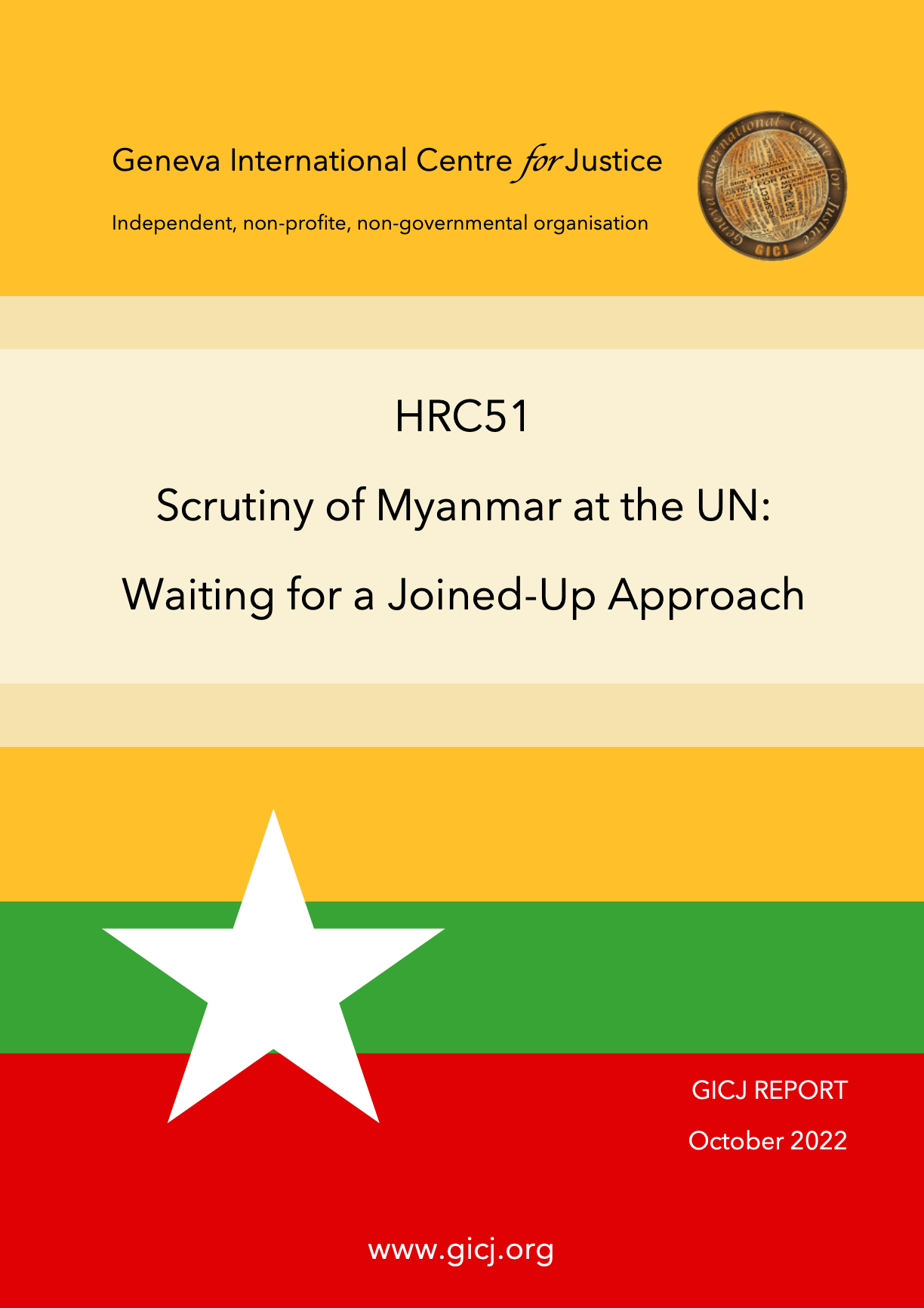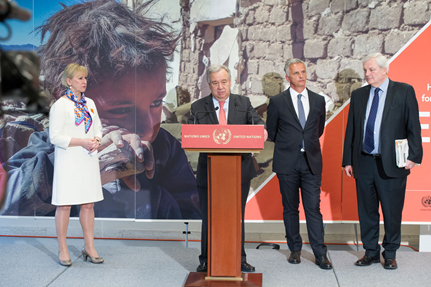
Figure 1. Secretary-General António Guterres (at podium) is joined by from left: Foreign Ministers Margot Wallström of Sweden, and Didier Burkhalter of Switzerland, and Emergency Relief Coordinator, Stephen O’Brien at the press briefing in Geneva of the High-Level Pledging Event for Yemen. Photo: OCHA
High-level Pledging Event for the Humanitarian Crisis in Yemen - Geneva, 25 April 2017
On 25 April 2017, the international community pledged nearly US$1.1 billion (exactly US$1,098,466,634) to help alleviate the impact of the humanitarian catastrophe in Yemen, where nearly 19 million people are in need of emergency support.
Even before the current conflict escalated in September 2014, Yemen was the poorest country of the Arab peninsula and already faced enormous levels of humanitarian needs caused by under-development, economic hardships, intermittent conflict, and weak rule of law. After the outset of the conflict between the internationally recognized Government of Yemen and armed Houthi rebels, the situation escalated into the world’s largest man-made crisis.
Today, more than four on five Yemenis need some type of humanitarian assistance, 28 million people are short of food, 17 million are food insecure, and 14.4 million have no access to drinking water and sanitation. Furthermore, since the outset of the conflict, 7,600 people have been killed, 42,000 injured, over 3 million people are displaced, and more than 180,000 civilians have fled the country. In Yemen, less than half of health care facilities are functioning, the majority of doctors have fled and those who remained are strained by the growing caseload, and the lack of proper sanitation increases the risk of diseases such as the recent cholera outbreak.

Figure 2. A man sits in the rubbles of his house after it was destroyed by an airstrike
In order to advocate for a pressing cessation of hostilities and to mobilise urgent resources in support of the Yemen Humanitarian Response Plan, the United Nations, Sweden and Switzerland organised the high-level pledging even which was co-hosted by the Secretary-General of the United Nations, His Excellency António Guterres, the Minister of Foreign Affairs of Sweden, Her Excellency Margot Wallström, and the Minister of Foreign Affairs of the Swiss Confederation, His Excellency Didier Burkhalter
The aim of the event was to bridge a funding gap in the UN 2017 humanitarian appeal of $2.1 billion, to effectively address the rapidly deteriorating humanitarian situation, the pressing threat of famine and the urgent need for resources. The Yemen Humanitarian Response Plan (YHRP) launched by the United Nations and its humanitarian partners aims at providing neutral and impartial life-saving assistance and protection to millions of people; yet, prior to the event, only about 15 per cent had been met.
The high-level conference saw the participation of more than 70 countries, several regional organisations, UN agencies and non-governmental organisations, including from Yemen. Pledges were made by 48 Member States, the European Commission, the Central Emergency Response Fund and four non-governmental organisations. From a preliminary breakdown, it appears that Saudi Arabia pledged $150 million, the U.K, more than $173 million, the United Arab Emirates $100 million, and the United States nearly $94 million in additional assistance (for a total of $526 million since the 2016 fiscal year). The outcome of US$1.1 billion was described as “a remarkable success” by the UN Secretary-General.
“At a time when Yemen is experiencing a tragedy of almost unprecedented proportions and the need for humanitarian and protection assistance has never been greater, the generosity shown at this pledging conference helps to reaffirm our common humanity,” said UN Secretary-General António Guterres in his concluding remarks. The donations will allow UN partners to provide food, nutrition, health supplies, logistics and security support.
However, the generous support of Member States and international agencies will not be sufficient to alleviate the suffering of the population if humanitarian actors are not allowed unhindered access and if hostilities do not cease. In fact, in spite of all efforts, aid delivery is often obstructed by the conflict, import restrictions and bureaucratic obstacles, and people living in besieged, war-torn and rural areas continue to be deprived of basic supplies and livelihood items. If the underlying causes of the humanitarian crisis are not properly tackled, the situation on the ground will further deteriorate and millions of people will continue to die of preventable causes.
In order to provide adequate assistance to the 10 million Yemenis in need of immediate support and to deliver aid to the 6.8 million people that are at risk of starvation, all actors involved in the conflict should abide by international law, constructively participate in the peace talks and facilitate the political resolution of the war. If the hostilities do not cease, an entire generation will be annihilated. As Margot Wallström, Minister for Foreign Affairs of Sweden, said during the event: “A whole generation is at risk – and this generation needs to rebuild Yemen.” In fact, children are overly affected by the famine and by the lack of adequate health care supplies and facilities. Today, almost half a million children are severely food insecure and a child under the age of five dies every 10 minutes of preventable causes.
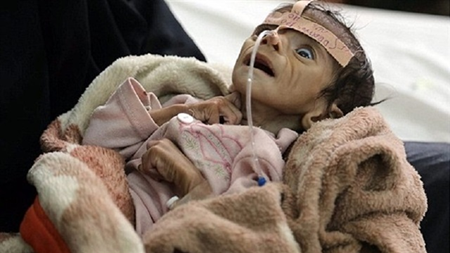
Figure 3. A gravely malnourished child receives treatment in on of the few functioning hospitals in Yemen
While welcoming the pledge of US$1.1 billion raised on April 25, 2017, GICJ contends that the international community should focus on the resolution of the underlying causes of the conflict and of the humanitarian catastrophe. All actors involved should respect international humanitarian and human rights law, and should take concerted efforts to promote political and peaceful settlements. If the root causes are not properly addressed, the scope of the crisis will grow even further.
Finally, if no unhampered access is allowed, millions of people will remain out-of-reach for humanitarian workers. Therefore, GICJ urges the United Nations to call on all parties to the conflict to facilitate the entry of essential commercial and humanitarian goods into all areas of the country and to ensure unimpeded and sustained access to all people in need.
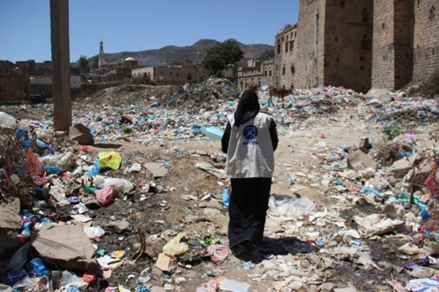
Figure 4. Destruction and desolation in the streets. The conflict has caused the displacement of over 3 million people in Yemen
Related links:
- Side-event at the Human Rights Council - Yemen: A Humanitarian Catastrophe
- Side-event at the Human Rights Council - Yemen: Nothing is Safe








